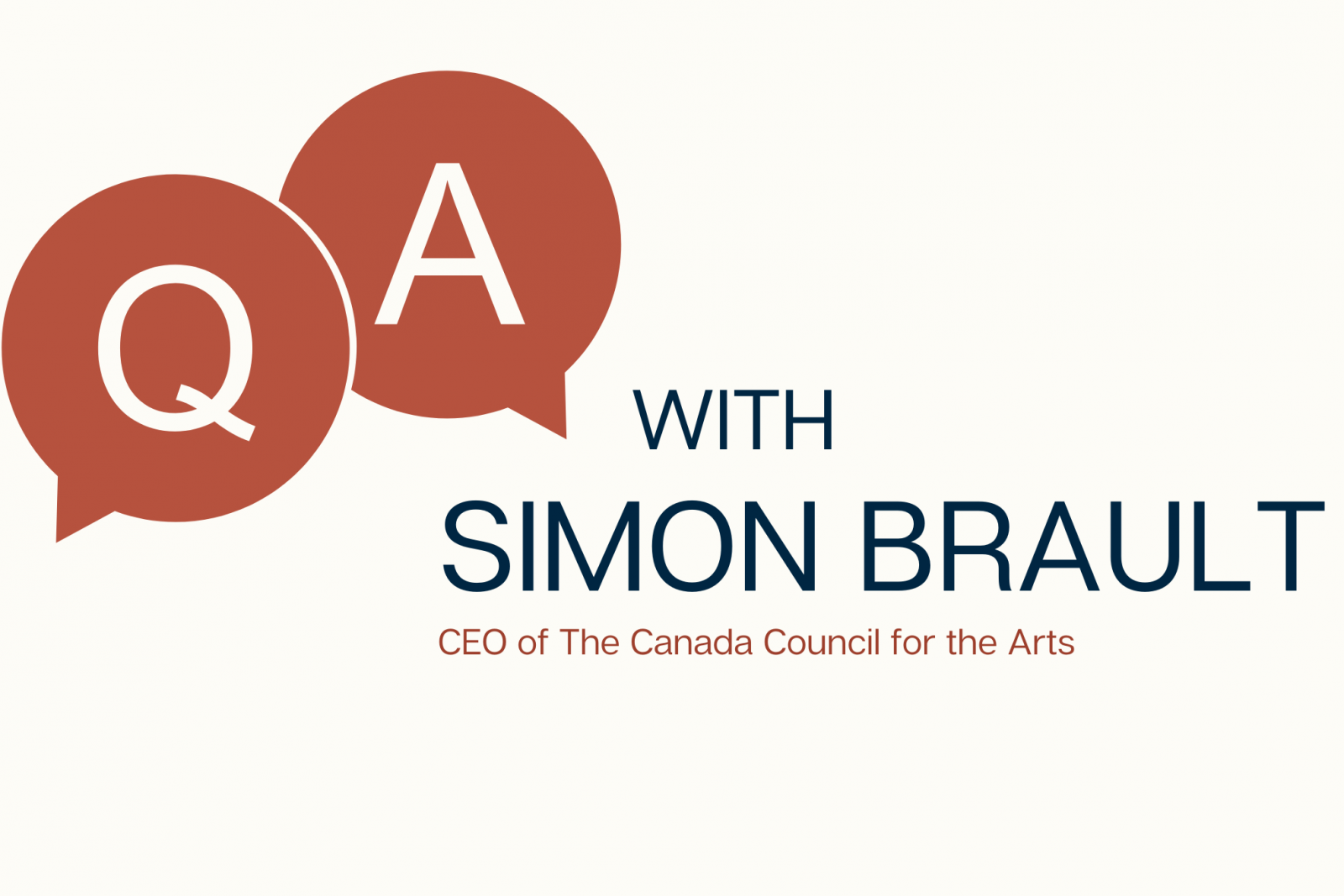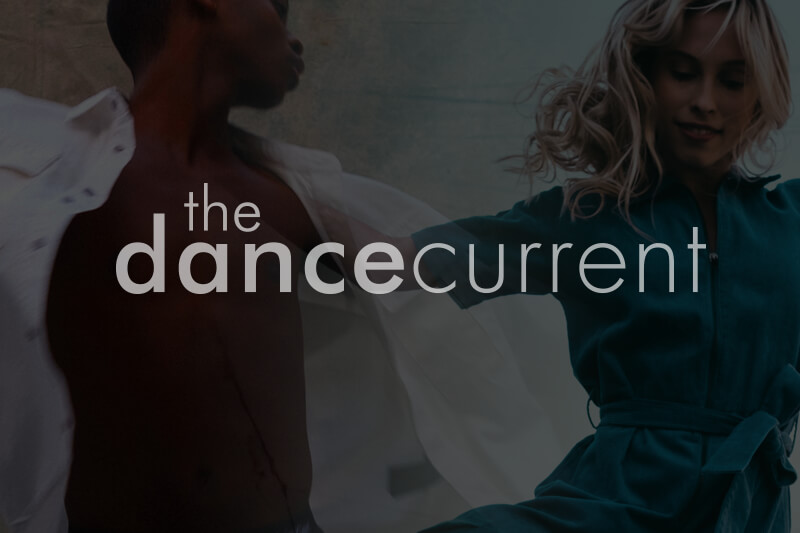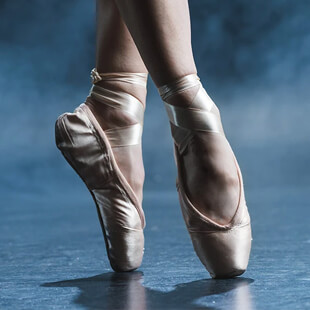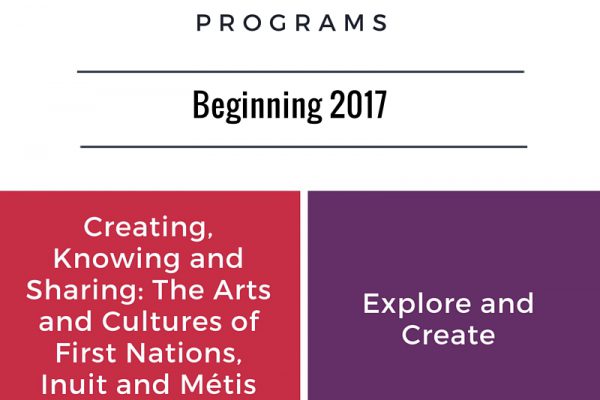Last week, in response to Russian military forces invading Ukraine, the Canada Council for the Arts released a statement on their website announcing a temporary hold on all funding that would constitute the transfer of Canadian public funds into the Russian or Belarusian economy.
The Dance Current’s editor, Grace Wells-Smith, spoke with the Canada Council’s CEO, Simon Brault, about this decision, which has ignited online debate.
***
Grace Wells-Smith: On March 4, you published a statement saying that all activity involving the participation of Russian or Belarusian artists or arts organizations will cease to be funded by the Canada Council for the Arts. This includes partnerships, direct and indirect financing of tours, co-productions, participation in festivals or other events held in Russia. So can you first explain why the Canada Council made this decision?
Simon Brault: So we made the decision absolutely in the spirit of the economic sanctions that the Government of Canada, supported by the Parliament, made in terms of imposing a complete sanction to Russia because of what is happening right now in Ukraine. So the idea of that is that we were not defunding anyone, but what we are saying is that from now on, if we are getting a grant application for a project and that the end result of that project would be transfer of money, of our public money that we’re managing, transfer of that money to the economy of Russia or Belarus, we will not support it because our country is imposing those economic sanctions and we are aligned with that.
That’s the very essence. It’s not a cultural judgment. It’s absolutely a question of economic sanctions and also signalling that the time for cultural diplomacy with Russia right now is suspended. So sending any money there or any Canadian artists on Russian soil would make no sense.
Our decision is, again, very aligned with all the countries imposing those sanctions. It’s also very aligned with our partners all around the world involved in funding. So it’s very specific to this situation of highly co-ordinated sanctions against Russia as the way to respond to what it is now. That’s the only way.
GWS: So then on March 8, you updated the post because the council received several questions and comments. It now clarifies that our immediate hold applies to any artistic activities taking place in Russia or Belarus, such as touring and/or the presentation of activities in Canada by artists and arts organizations from Russia or Belarus involving travel to Canada. And, you know, it goes on; and it also clarifies too that Canadian citizens and permanent residents of Canada, including those of Russian and Belarusian descent, continue to be eligible for funding. So can you first describe the questions and comments you were receiving that initiated this clarification?
SB: Yeah, there were a lot of questions on the, you know, a festival in Canada [for example], or a symphonic orchestra having already made arrangements for Russian performers to be there. And so they wanted to know, What do we do? So what our answer to that is, It’s absolutely your choice. I mean, it’s not the new request you’re making to the Canada Council.
And we do understand that they need to make that choice because when I talk to my European colleagues, I realize every day that one big difference in terms of what is happening in Canada is also the presence of the biggest Ukrainian diaspora in the world, and that is creating sensitivities that some organizations will want to consider, so we understand that.
So we wanted to make that clear. So we won’t give any direction or we won’t penalize or cut any organizations already funded by the Canada Council or any project already funded by the Canada Council. We will not do anything retroactively. So that’s one thing.
There was also the need to clarify because we realized (and that was a surprise) that many Canadians, many artists, wrote to us saying, I’m Russian. And we realized that OK, you’re Russian, but if you get a grant from Canada Council, it’s because you’re Canadian. That’s your origin, but we don’t fund Russian artists. I mean, that’s not the role of the Canada Council. And our grants only go to Canadian citizens or landed immigrants. So we needed to clarify that because we understood that there was some kind of confusion or some kind of an emotional reaction to it. Like, you know, if it was against Russian people or Russian culture, we had questions about, you know, Can I play Chekhov? Yes, obviously, you can. It’s not at all the idea of organizing any war against Russian culture or Russian artists. On the contrary, it’s really about the spirit of the economic sanction, in this very moment.
So we needed to really clarify that, which we did. And again, the economic impact of all that is very limited. But we needed to be very honest and clear about that because, in other domains, you know, museums, international federations, there have been a lot of decisions like that. But as a public funder, we needed to make clear that we will not make any decision creating a transfer of public money to Russia.
GWS: Right. You mentioned you were kind of surprised at a lot of these comments. So people taking this personally is not something that you really foresaw?
SB: No and actually, I’m not the only one. I gave, I don’t know, probably 20 interviews this week and spoke with people from everywhere in Canada, and everybody said that they never thought that this question would be [raised]. It’s like, for part of the population, especially the people in this sector [who] are close to the cultural sector, it is like all [the sanctioning] becomes more concrete or more real.
So it’s interesting. I think it creates discussions about the role and the importance of symbols, the role and the importance of arts. And it’s interesting because those discussions happen regularly, for instance, in sports and in the Olympics. But it’s interesting to see that people are not used to those discussions with arts and culture.
I think it creates discussions about the role and the importance of symbols, the role and the importance of arts.
Brault
GWS: So I have a scenario question for you. For example, if a Canadian company is producing a performance in Canada, and they’re including a Russian performer who they are flying in, according to these measures, they will no longer be eligible to receive funding for that performance?
SB: We will not support the flying because when you apply for grants, you need to say what your eligible expenses are. The question becomes more and more hypothetical because there’s no easy connections between Russia and Canada right now. But yes, I mean, again, the logic here is really Follow the money. So are we making a decision where we are transferring Canadian public money for arts and culture for expenses that will be injected into the Russian economy? That’s how we will consider that, and this is why in the blog we said, if you have a project, if it makes sense, phone, and we’ll guide you with that.
GWS: Right, right. Because I could see a scenario where, you know, something might have to get cancelled, and then a lot of artists lose out. So do they have options so that doesn’t happen?
SB: They do. And actually something that has been funded already, programmed already, will not be cancelled by us. And we won’t cancel the funding. What we are saying is that from now on, so as of the date last week, last Friday, any grant application for a project that would involve, ultimately, a transfer of money benefiting the Russian economy or people in Russia, would not be supported by the Canada Council. That’s the decision.
My staff did get phone calls from an orchestra that’s planning touring and all of that; we’re debating that and discussing that, and we are making sure that we respect our values and principles, but the spirit also of those sanctions.
We’re the Canada Council, so we care about the artists, and we care about arts, and we won’t change that. It’s more that we want to be true to the question of not funding Russia or the Russian economy at this moment.
GWS: Right, understood. So who was involved and consulted in making this decision?
SB: All my directors, obviously, and all the portfolio of Canadian Heritage has been debating that. I’ve been obviously involved in many of those discussions at the UNESCO level at the International Federation of Arts Councils. There have been discussions and influence and consideration and debates at many different levels, but we make at the Canada Council, once we hear the advice and demands and requests from everybody, we make our own decisions with our governance structures.
We’re the Canada Council, so we care about the artists, and we care about arts, and we won’t change that. It’s more that we want to be true to the question of not funding Russia or the Russian economy at this moment.
Brault
If the question is, Is it a personal decision? I will tell you now that it’s a very collective and very broad [discussion], with numerous conversations at different levels in Canada, in co-ordination with our colleagues around the world.
GWS: So as you said, lots of people are making similar choices. Across North America and Europe, we’re seeing companies cancel performances by Russian artists, whether or not they support Putin. For example, the New York Times recently reported that Leila Getz who’s the founder and artistic director of a recital series in Vancouver, cancelled an appearance by a Russian pianist, Alexander Malofeev –
SB: The same artist has been cancelled for the last three concerts in Montreal [and that] created a big outcry. So yeah, I’m aware of that.
GWS: Right, right. So he didn’t have any known ties to Putin, but Getz issued a statement saying that she could not in good conscience present a concert by any Russian artists at this moment in time unless they are prepared to speak out publicly against this war. So my question for you is, what do you think about institutions ‘policing’ artists’ political values?
SB: As the director of the Canada Council, it’s difficult for me to, to be critical of my own clients. So I think, I mean, that’s their decision. But if you asked me if I would I do something like that, I would say no. I don’t think we should put at risk artists because, frankly, if you are a Russian artist with your family living in Russia, and you make a statement right now against Putin, they’re in prison. So I think it makes no sense. But again, those decisions that have been made sometimes by my clients or when it’s outside my country, that’s OK. They have the right to make those decisions. But if you asked me if I find it reasonable, or if it makes sense, I would say no.
If the question is, Is it a personal decision? I will tell you now that it’s a very collective and very broad [discussion], with numerous conversations at different levels in Canada, in co-ordination with our colleagues around the world.
Brault
GWS: Right. And so you don’t necessarily consider the measures that the Canada Council has put in place to be, as they say, ‘policing’ people’s values?
SB: No, no, not at all. Because actually, none of those decisions are linked with our statement or with our politics – none of them. That’s not the intention. Again, the intention of all that is to make sure that we will not from now on support or invest in projects involving transfer of money to Russia. And that’s it. That’s all. And I think that some people kind of speculated about, you know, what it means and all that, but frankly, I’m telling you as the CEO of the council, this is the very essence of our decision. And this is how we will, you know, if there is a case that is limited and difficult and complex, we will analyze the proposal we will get, and we will look at the eligible expenses and see if there are expenses that are directly involved in investment in Russia, [and] we will say, No, we won’t support that. And if it’s the entire project, the project won’t be supported. But that’s the essence of what we do.
GWS: Do you have any idea how many applications are going to be impacted by these measures?
SB: I would say not many because especially after two years of pandemic, most of the international touring and presence and festivals and all that I’ve been, you know. At Canada Council, we used to spend $25 million to support projects of touring all over the world. So any given year, that would be between $2-300,000, that would go to projects in Russia, artists travelling to Russia, going in literary festivals and all that. But all that slowed down dramatically because of the pandemic. So we redirected all that money into the Canadian activities. So it’s very difficult to say how many of them will be impacted. I would say it would be very minimal, especially now that because after the statement we made, we learned that the Canadian government was asking every Canadian to quit the territory in Russia. So that came after the statement. So frankly, at this very moment, I don’t imagine anyone would be penalized because no one will submit this kind of project because it’s not feasible.
We’re more on the symbolic side of things because we’re not [a franchise] announcing that they’re closing their stores in Russia. You know, [we’re] very limited in terms of impact.
GWS: I just have one more question: I’m wondering if you’re concerned that these measures will affect the artists with the most financial precarity in Canada, so specifically the artists that rely on project grants and don’t have reliable multi-year funding?
SB: No, I’m not concerned at all because at this moment, never in our history has the Canada Council injected more project funding [into the sector]. And project funding in Canada involving the transfer of money with Russia: we’re talking about maybe $10,000. And our budgets for project funding in Canada right now is $190 million.
This conversation has been edited for clarity.
Dance Media Group strengthens the dance sector through dialogue. Can you help us sustain national, accessible dance coverage? Your contribution supports writers, illustrators, photographers and dancers as they tell their own stories. Dance Media Group is a charitable non-profit organization publishing The Dance Current in print and online.

Tagged:




